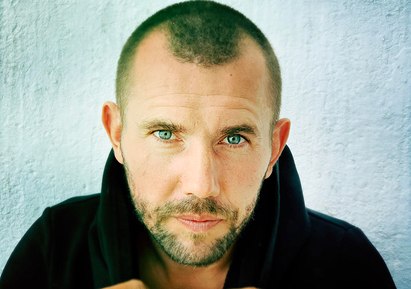Mariupol, a city on the coast of the Sea of Azov, is a stone’s throw from the war zone in eastern Ukraine. The sounds of gunshots are heard within the city. We have the opportunity to see the daily life of the inhabitants of the surrounded city. A man mends a fishing net and goes out to sea. Two trams collide with each other – no one was injured, the wires are repaired on the same day. A small concert is organized for the workers at the factory – the sincere playing of the violinist moves them to tears. Bombs fall into the sea, but people are already used to it.
He was born on August 28, 1976 in the city of Birzhai. In 1998, he graduated from the Faculty of History of Vilnius University. In 2007, he received a master’s degree in social and cultural anthropology from the University of Oxford. In 2013, he defended his doctoral thesis at the University of Cambridge, after which he continued to teach the theory of religion, law and politics at this university. During the Russian invasion of Ukraine, he worked as a documentary filmmaker in Russian-occupied Mariupol. At the end of February, he was captured by them and shot, presumably after torture. In order for Kvedaravičius’ widow to be able to take out the remains, it was reported that the director was allegedly killed by shelling and a misleading date of death was given (the exact date of death is unknown).
